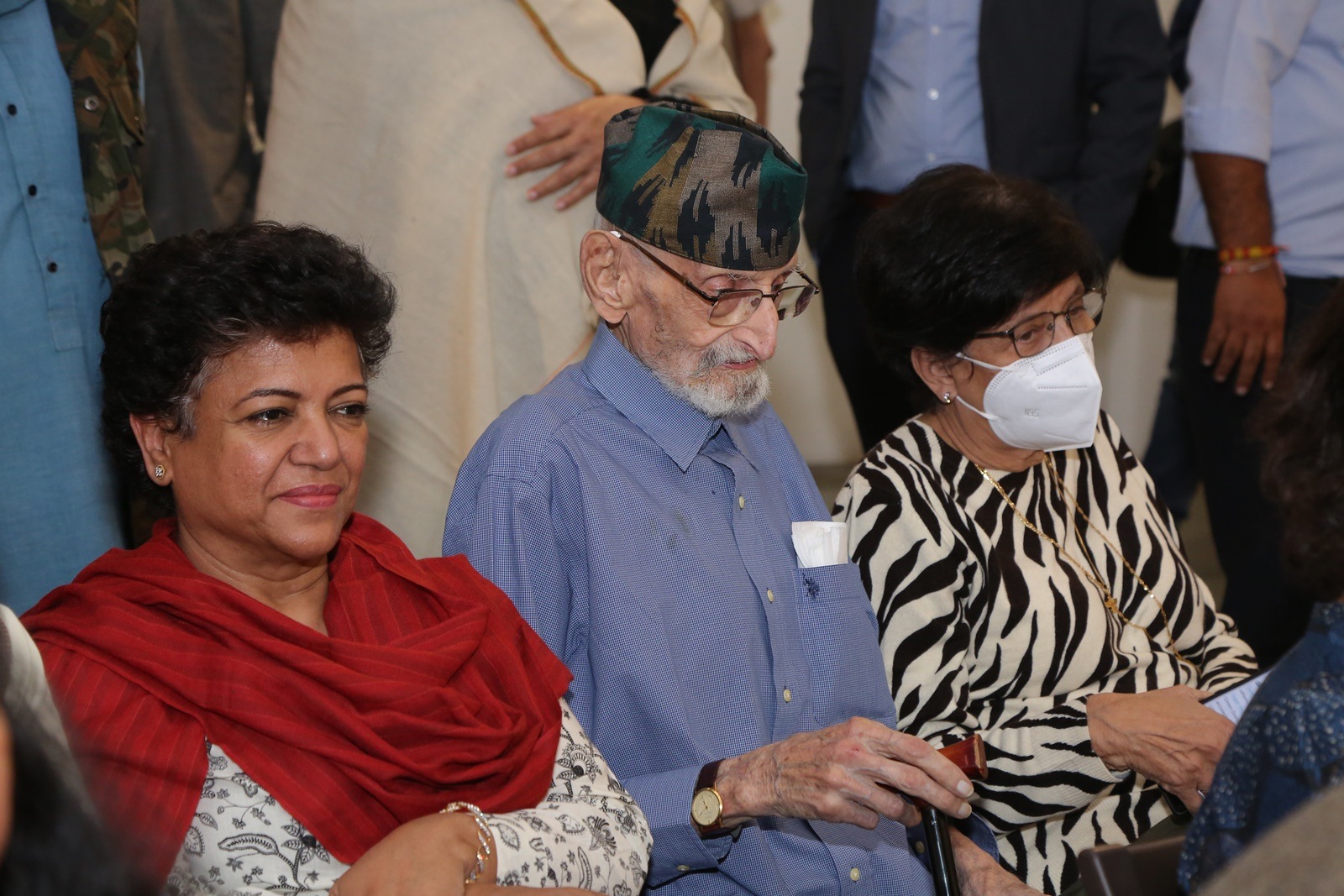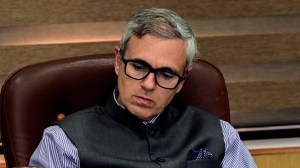Exhibition commemorates centenary year of late Lt. Gen Adi Sethna
Sethna’s life comes alive in this immersive exhibition, which chronicles not just the illustrative life of the late General but the transformative experiences and defining moments of the 20th-century
 Visitors at the exhibition at IIC, New Delhi
Visitors at the exhibition at IIC, New Delhi At Zest For Life, an exhibition to honour the centenary of the late Lt. Gen, Adi Sethna, PVSM, AVSM, which will conclude on Thursday at the Indian International Centre, New Delhi, one is greeted with a faint marching song from World War I:
“Pack up your troubles in your old kit-bag
And smile, smile, smile
You’ve got a lucifer to light your fag
Smile, boys, that’s the style!”
Much like the song, Sethna’s life was a remarkable tapestry woven with the threads of history, culture, and service, upheld with heroic optimism. Born in 1924 into a Parsi family in Bulsar, his journey was shaped by transformative experiences and defining moments of the 20th century. At the exhibition, the room is lined with several life-size panels that have pictures from Sethna’s life and descriptions of that time which are informed by his diary entries.
Shernaz Cama, Sethna’s daughter and one of the organisers of the exhibition, said, “The 100 years of dad’s life seemed to be in many ways a pathway to the 100 years of modern India. His story is not merely that of an individual but a mirror reflecting the tumultuous and triumphant evolution of a nation in the 20th century. ”
From the experimental corridors of Doon School in 1935, to learning English under the literary giant Harivansh Rai Bachchan at Allahabad University (1941-1943), Sethna’s early years were steeped in an education that prepared him for the extraordinary. His courage and resilience were tested during World War II, when he served in Java, witnessing the dramatic fall of Surabaya in October 1945.
Sethna’s Parsi upbringing instilled in him a deep sense of responsibility and action, reflected in his diary entries from Doon School. On January 1, 1940, as a senior, he began chronicling his thoughts in Scratches of My Pen. The pages reveal a young man of intellect and curiosity—debating ideas with methodical pros and cons, skipping a swimming competition to chase raw mangoes and lychees, and owning up to mischief before his housemaster, Jack Gibson.
“His diaries are extremely detailed from his time in Doon School. He was one of the first batches of Doon School. Doon School did change my father’s life a lot because it taught him independence, mountain climbing and many other things. But most importantly, it taught him the value of India. Jana Gana Mana was a school anthem much before it became the Indian National Anthem. (Rabindranath) Tagore was discussed in great detail. It was Shantiniketan without the trappings of Shantiniketan. And the concept of working with your hands was something which all these Englishmen inculcated in the Indian students. So it became a builder of modern India in miniature, “ said Cama.
His later diaries capture profound moments of India’s history, from witnessing the horrors of Partition outside the Muir Hostel in Allahabad to analyzing the Attlee-Truman Notes on Kashmir with the sharp eye of a future strategist. These reflections paint a vivid picture of an India undergoing seismic change and a young man poised to navigate it with clarity and determination.
A new chapter began in 1949 when Sethna became ADC to Governor-General C. Rajagopalachari and later, Dr. Rajendra Prasad, India’s first President. This role offered him a front-row seat to India’s early post-independence history. As one of the rare Commonwealth officers selected for both the Army Staff College in Camberley, UK, and the Royal College of Defence Studies, London, Sethna epitomized the qualities of an officer and a gentleman.
Sethna was not just a witness but an active participant in pivotal events of modern India. He stood present as Dr B.R. Ambedkar signed the Constitution at what is now Rashtrapati Bhavan. As Commanding Officer of the 5th Battalion, Rajputana Rifles, he bore witness to the turbulence of the 1962 Sino-Indian War. In 1971, during the Bangladesh Liberation War, he flew alongside General Jagjit Singh Arora in a helicopter that came under enemy fire.
 A glimpse from the gathering
A glimpse from the gathering
“Dad started writing his memoirs, but he only lived long enough to write the first chapter, which is also incomplete. So, one always felt a great lacuna because he lived a very interesting life.
We always wished we had made a movie like the one about Field Marshal Sam Manekshaw… This was always playing at the back of my mind. Dad passed away 20 years ago. But for his centenary, we decided that he still had people like Dr Karan Singh around who knew him. Of course, we had his diaries. We wanted to put together the very interesting life he had led. Secondly, the 100 years of Dad’s life seemed to be in many ways a pathway to the 100 years of modern India,” said Cama.
His life was also a testament to India’s cultural renaissance. In a small room at the Ashoka Hotel, he observed Pt. Ravi Shankar compose Swagatam, the iconic song of the 1982 Asian Games—a moment that symbolized the merging of tradition with modernity.
Sethna’s leadership extended beyond military service. As Chairman of the India Tourism Development Corporation (ITDC), he spearheaded innovative initiatives, introducing adventure tourism with the Himalayan Rally (1980-1990) and Himachal heliskiing in 1987. His co-founding of Kaleidolndia, a film production company dedicated to showcasing the sacrifices of the armed forces, ensured the nation never forgot the contributions of its defenders.
From Poonch to Wellington, Ahmedabad to Tawang, Adi Meherji Sethna embodied the essence of an Indian unafraid to embrace the best, while striving to improve the rest. Whether it was his strategic insights during critical junctures or his cultural contributions that celebrated the soul of India, Sethna’s life was a bridge between tradition and modernity, between duty and creativity.
“Dad’s life is the life of small-town India. Through education being able to reach the skies. If one family can do this, any family can do this. So, I think that is inspiring. He did have a great zest for life. While he was in hospital (Sir Ganga Ram Hospital, Delhi), in 2003, he said goodbye to us because the doctor said it won’t be long. The next morning, I was coming in and I met the doctor. He smiled and he said that he had never seen a man like this. He opened his eyes and saw the doctor and said, ‘Oh, I am still here. I am glad to be alive.’ How can a man facing death talk in such a sense? A sense of humour is a very important thing and self-deprecating humour is important which all of us need to learn,” said Cama.







- 01
- 02
- 03
- 04
- 05
























